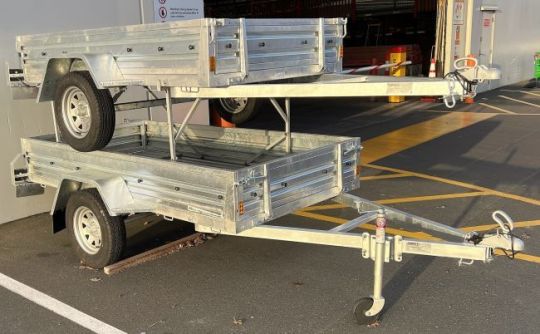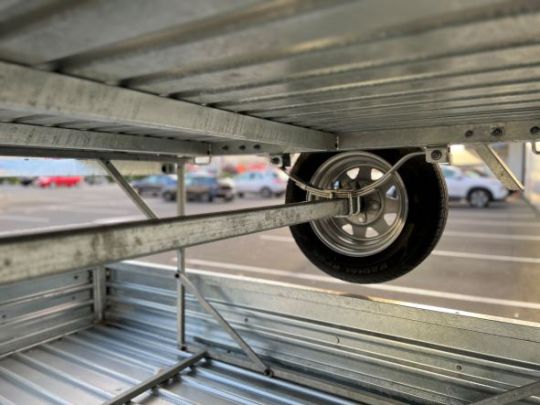Buying a Cheap Trailer
Trailers are essential tools for transporting goods, equipment, and even vehicles.
When it comes to buying a trailer, there are many options available to consumers.
One option is to purchase a cheap, mass-produced trailer.
While this may seem like an attractive option due to its affordability, there are both pros and cons to consider before making a decision.

Pros:
- Affordability
The most obvious benefit of purchasing a cheap, mass-produced trailer is its affordability. These trailers are often priced lower than custom-built trailers, making them accessible to consumers on a tight budget. A cheaper trailer can save consumers a significant amount of money, particularly if they only need it for occasional use.
- Availability
Mass-produced trailers are widely available, which makes them easy to find and purchase. They are often sold by retailers and dealerships, and can even be found online, making them a convenient option for those who need a trailer quickly. In comparison, custom-built trailers may take longer to manufacture and may be harder to find.
- Ease of use
Cheap, mass-produced trailers are designed to be easy to use. They typically come with basic features that make them functional and straightforward to operate. For instance, they may have an easy-to-use hitch system, simple loading ramp, and basic lighting. These features make it easy for consumers to use the trailer without needing specialized knowledge or skills.
- Low maintenance
Mass-produced trailers are usually designed to require minimal maintenance, which can be appealing to consumers who don't have the time or expertise to perform repairs or upkeep. These trailers often come with standard features that don't require much maintenance, such as standard bearings, basic lighting, and low-maintenance tires.

Cons:
- Poor quality
One of the biggest downsides of buying a cheap, mass-produced trailer is its poor quality. These trailers are often made with subpar materials, which can lead to structural issues and safety concerns. Additionally, the manufacturing process used to produce these trailers may not be up to par, which can lead to problems down the line.
- Limited customization
Mass-produced trailers are designed to be a one-size-fits-all solution, which means they often lack customization options. This can be problematic for consumers who have specific needs or requirements for their trailer. For example, a consumer may need a trailer with specific dimensions, weight capacity, or features that are not available in a mass-produced trailer.
- Short lifespan
Due to their poor quality, mass-produced trailers often have a short lifespan. They may require frequent repairs and maintenance, which can be costly in the long run. Additionally, they may not hold up well under heavy use, which can lead to safety concerns. Over time, these trailers may become less reliable, which can make them a poor investment.
- Limited resale value
Cheap, mass-produced trailers often have limited resale value. This means that they may not hold their value over time, which can be problematic for consumers who plan to sell their trailer in the future. This can be particularly true if the trailer has suffered damage or required frequent repairs, which can significantly reduce its resale value.
- Safety concerns
As mentioned, cheap, mass-produced trailers may have safety concerns due to their poor quality. These trailers may not be able to withstand heavy loads, and may not have the necessary safety features to keep drivers and passengers safe on the road. Consumers may need to invest in additional safety features, such as trailer brakes or stronger hitches, to make the trailer safe to use.
- Lack of warranty
Mass-produced trailers are often sold without a warranty or with a limited warranty, which can be problematic if the trailer experiences issues shortly after purchase. Without a warranty, consumers may need to cover the cost of repairs or replacement out of pocket, which can be a significant expense.